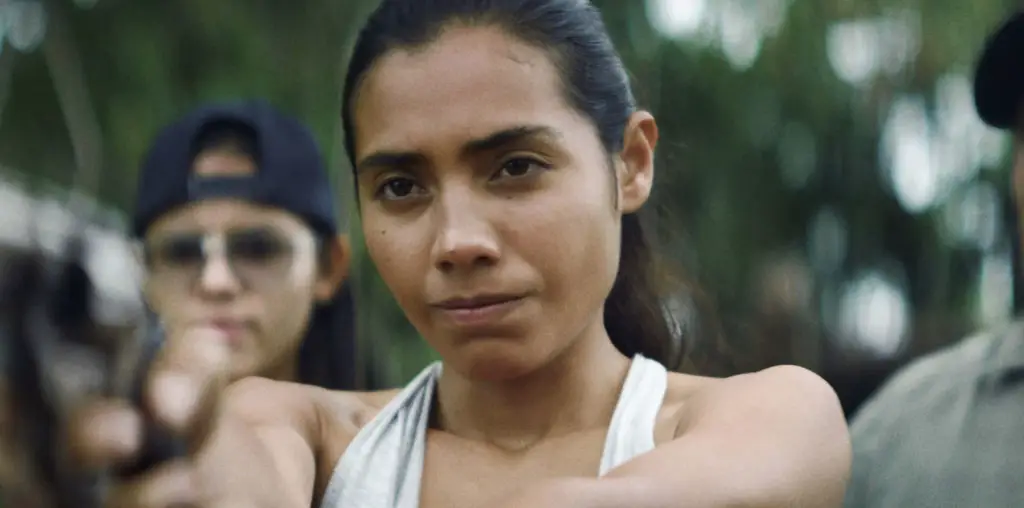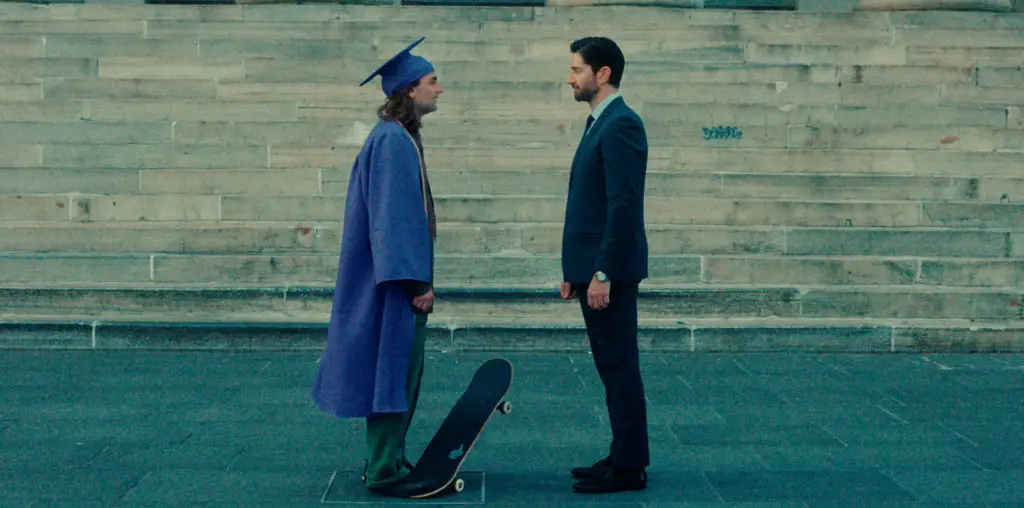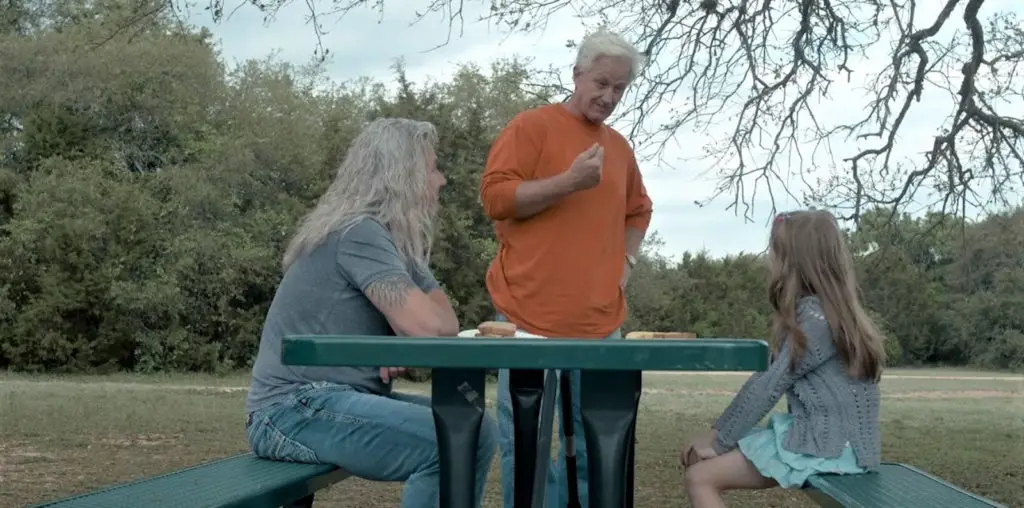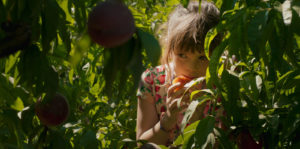
The director ensures that the emotions and conversations remain the driving force of the story, which has been crafted with a substantial personal touch. You might even notice how Alcarràs doesn’t profoundly address the family’s concerns in direct visuals. Instead, it’s conveyed chiefly through expressions. And while problems arise, the family does not sway from the good times that must come from the presence of kids, gatherings, and carnivals.
The well-trained performers, none of whom come from a professional acting background, center the story. Organizing a whole ensemble of non-actors and putting them together in most sequences makes this an excellent example of collaborative filmmaking efforts. Featuring a cast that substantially focuses on kids and young performers, having non-actors display the sheer fragility of various emotions on-screen is nothing less than mesmerizing to witness.

“…Jounou brings optimistic undertones through her adorable charm…”
Among them, Jounou brings optimistic undertones through her adorable charm and body language. From Iris’ bond with her cousins and playfulness with her siblings to her naive understanding of surrounding events, the young girl brings her actual child-like traits to the screen and becomes the cynosure of the movie. Also adding great value to the cast are Xènia Roset and Albert Bosch, playing Iris’ siblings, Mariona and Roger. The two teens bring much-needed balance to the contrasting generations of worried adults and carefree kids.
To top these performances, Alcarràs vehemently adds incredible and detailed design, styling, and overall aesthetics for further realism. The film is shot on location, featuring the most realistic set and production design elements. The far-stretching farmlands speak of the long-standing history of agriculture in the area. A pond of water sits between the panels and the peach, resembling nature’s last defense or maybe nature’s silent and still helplessness against an inevitable threat. Donning shorts, half-sleeve shirts, cut-sleeve vests, and home summer outfits under the scorching is the Solé family, each offering a helping hand in the season’s last and financially significant harvest.
All the little moments make the biggest, universally allegorical and thematic difference. It’s not the hard-hitting statements or speeches that feel truthful but the authentic voices of people. Spanish cinema has produced several stories reflecting the nation’s suburban locale, cultural omnipresence dynamics, and rapid urbanization’s impact. Alcarràs is an impressive inclusion in this cinematic revolution. The visual emphasis on naturalism and the remarkable ensemble make this the most grounded and humane representation of an entire culture and way of living.
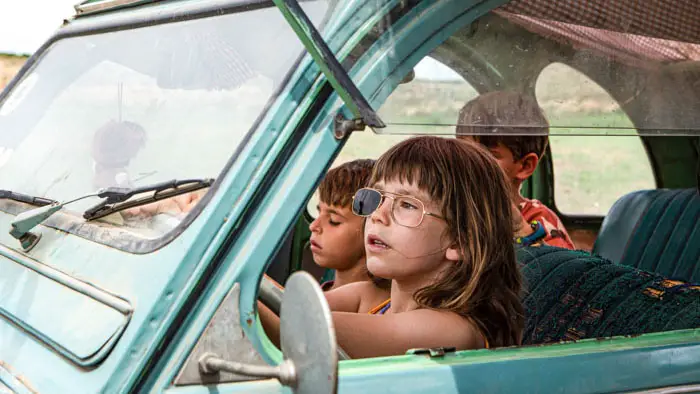
"…[a] grounded and humane representation of an entire culture and way of living."
